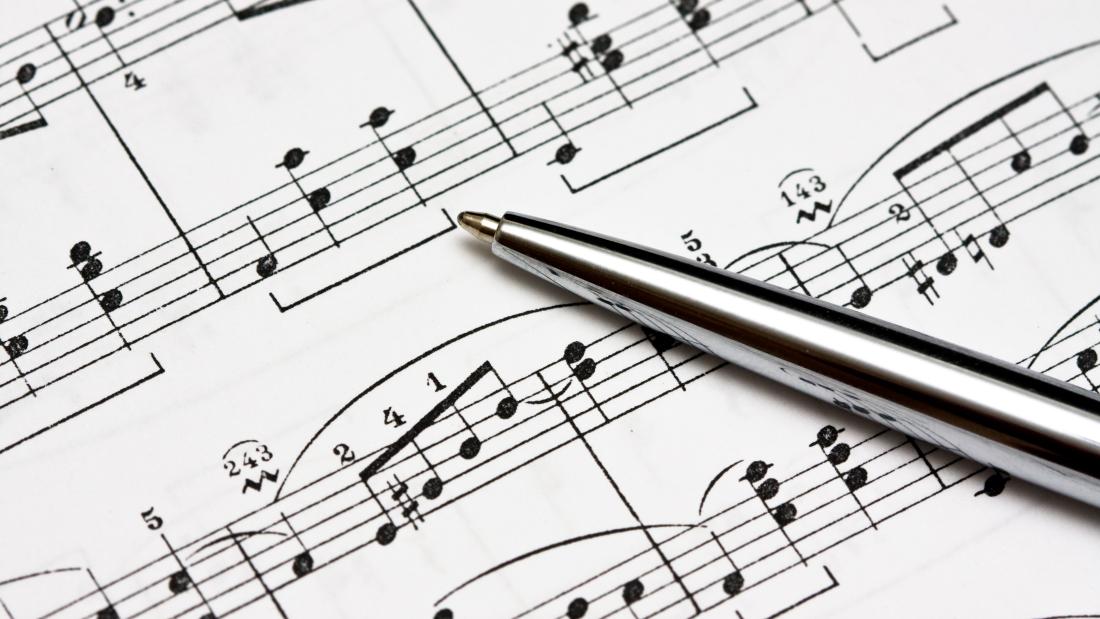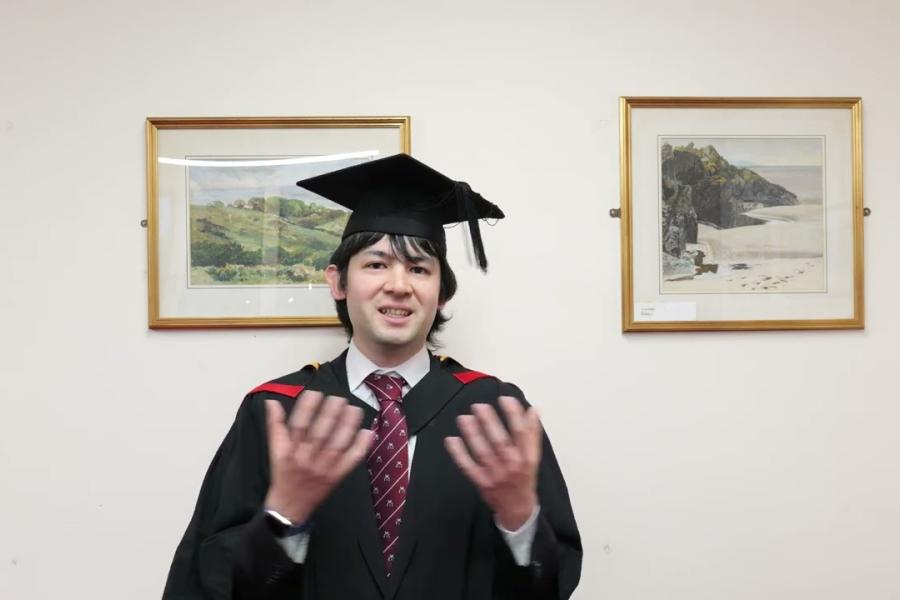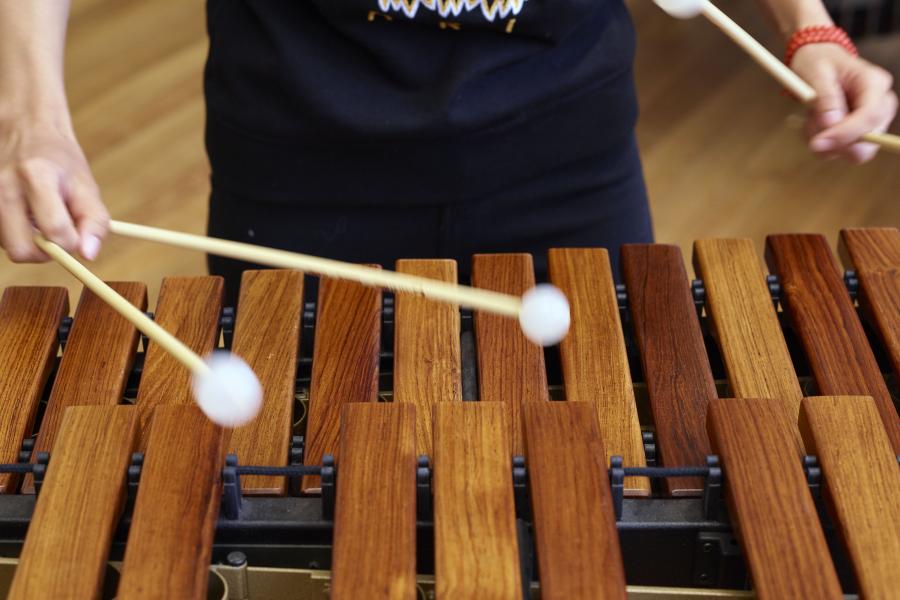About This Course
This MMus in Composition and Sonic Art allows you to develop your skills and understanding of contemporary practices in music composition and sonic art. The programme will equip you with the knowledge required to compose in a range of contemporary styles. Studying this master’s programme in Composition and Sonic Art will enable you to develop high-level skills in a compositional field of your choice. You will learn to place your own artistic practice in a broader creative and intellectual context, and will hone high-level transferable skills in critical thinking, conceptual thinking, problem solving, analysis, communication, self-direction, creativity and originality.
Specialism is offered in a variety of genres, including writing for instruments and/or voices, electroacoustic and acousmatic composition, composing for live musicians with electronics, and popular song composition.
You can work closely with award-winning professional composers and established researchers, most of whom have international profiles. Studying at Bangor University means you can enjoy close links with industrial and third-sector partners such as the BBC National Orchestra of Wales, Sinfonia Cymru, Welsh National Opera, Opra Cymru, Aria Film Studios, Pontio Arts Centre, Venue Cymru, Ucheldre Arts Centre, Canolfan Gerdd William Mathias, Bangor Cathedral, Bangor Music Festival, North Wales International Festival and Wales International Piano Festival.
Programme Length
MMus: 1 year full-time, 2-5 years part-time
Diploma: 30 weeks full-time
Why choose Bangor University for this course?
- A broad curriculum that develops your creative voice while also building your knowledge and experience through pedagogical and practice-based research.
- A flexible programme of study that allows you to explore your own areas of interest within composition and sonic art.
- A contemporary course that addresses and promotes the development of key practice-based skills relevant to the music industry today.
- Expert tuition from renowned academics and practitioners in the fields of music composition and sonic art.
- Excellent facilities including four digital music studios, all with surround-sound capability, for music production and recording, film music composition and experimental sonic art.
My name is Dai Mito, and I studied composition and sonic art.
I really enjoyed making many musics, especially movie music, for silent movie.
In my opinion, there are many good environment, such as Piano room, Studio
Many books in the library. It's really helpful for my studies.
I have to make some specific music and sound effects.
It's really helpful for my thinking.
How to make special Movies or TV video games.
I would like to work for the editing, recording, making music for Japanese Broadcasting Corporation, like BBC in UK
This is a big dream.
Course Content
What will you study on this course?
This MMus in Composition and Sonic Art programme is divided into two parts:
- Taught Study (120 credits)
- Master’s Project (60 credits)
The Taught Study element of this course will be taught across two semesters for full time students with the Master’s Project produced over the summer. Teaching is provided through a combination of individual tuition and small-group seminars.
Students who wish to undertake the Diploma in Music will only complete the Taught Study element of this course. For the MMus in Composition and Sonic Art students will need to complete both the Taught Study element and the Master’s Project.
Taught Study (120 credits) (Diploma):
In each semester you will take a supervised Composition Project in your chosen style and medium, which together form the focus of your compositional practice.
Semester 1
- Composition Project 1 (20 credits)
- Music and Ideas (20 credits) explores a case study chosen from options growing out of staff specialisms, alongside a series of public research seminars delivered by staff and external speakers.
- Investigating Music (20 credits) brings together students following musicology, composition, and performance programmes. We explore a range of contemporary issues from these different and inter-related perspectives.
In semester 2
- Composition Project 2 (20 credits)
- Researching Music (20 credits) prepares you to undertake the summer research project. We cover aspects such as research methodologies, writing proposals, and managing your project.
- Composition in Context (20 credits) allows you to place your own practice in the context of both historical and contemporary developments in your chosen genre.
Master’s project (60 credits):
The Master’s Project, completed over the summer months, normally takes the form of a substantial original composition, or a coherent portfolio of works (30 minutes), accompanied by a contextual commentary documenting your creative practice and placing it in a wider context (2,000 words).
Students wishing to exit this degree programme with a MMus in Composition and Sonic Art must successfully complete the Master’s Project.
Modules for the current academic year
Module listings are for guide purposes only and are subject to change. Find out what our students are currently studying on the Composition and Sonic Art Modules page.
Course content is for guidance purposes only and may be subject to change.
Entry Requirements
- A first degree at 2.ii standard or higher (or equivalent) is required.
- Candidates with a 2.ii degree must however achieve a 2.i in a substantial project in their chosen area of study (e.g. a portfolio of compositions).
- Applicants may be asked to submit 2-3 representative samples of their creative work (these can be notated scores, or audio recordings, or both, and can be uploaded as documents or weblinks such as to Dropbox, YouTube or similar).
- English proficiency (for non-native English or Welsh speakers): IELTS English test with a score of 6.0 (no element below 5.5).
Careers
The MMus in Composition and Sonic Art will allow you to develop a strong original voice in an academic environment, and is an ideal preparation for further creative work at PhD level and beyond. The programme will also equip you with skills in critical thinking, creativity and communication which are valued by employers both within and outside the field of music. Recent graduates have pursued successful careers as professional composers, arrangers, music typesetters, arts administrators, teachers, educational advisers, performers, and business people.



